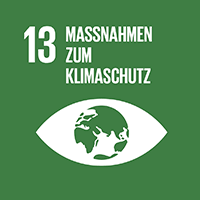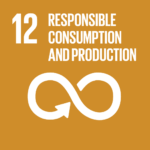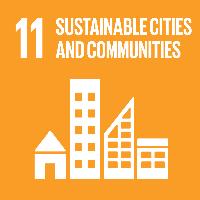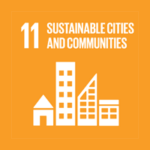The National Research Programme “Sustainable Economy: resource-conserving, future-proof, innovative” (NRP 73) aims to develop scientific findings on a sustainable economy with careful use of natural resources, greater welfare and increased competitiveness of Switzerland as a business location.
The first NRP 73 projects have completed their research. Podcasts will be published regularly starting in September 2022. With kind permission, the podcasts are now also published at Business Sustainability Today.
 In its 2022 Special Report, the Intergovernmental Panel on Climate Change said the world needs to invest $2.3 trillion annually in low-carbon electricity technologies alone to limit global warming to 1.5 degrees Celsius above pre-industrial levels. However, the new Bloomberg Energy Finance report estimates that only $755 billion was invested in energy transition sectors globally in 2021. This gap has not changed drastically so far. Barbara Dubach talks to Dr. Joëlle Noailly about why this is the case and what can be done to close this funding gap.
In its 2022 Special Report, the Intergovernmental Panel on Climate Change said the world needs to invest $2.3 trillion annually in low-carbon electricity technologies alone to limit global warming to 1.5 degrees Celsius above pre-industrial levels. However, the new Bloomberg Energy Finance report estimates that only $755 billion was invested in energy transition sectors globally in 2021. This gap has not changed drastically so far. Barbara Dubach talks to Dr. Joëlle Noailly about why this is the case and what can be done to close this funding gap. If we have saved energy in the winter, do we fly to the vacations as a reward? One of the UN Sustainable Development Goals is to strive for sustainable consumption and production patterns by 2030. In this context, consumers should be better informed about sustainable behavior. The question here is which incentives lead to sustainable consumption behavior, how effective these measures are, and whether this then has a negative or positive impact on other areas. In this episode, Barbara Dubach talks with Renate Schubert.
If we have saved energy in the winter, do we fly to the vacations as a reward? One of the UN Sustainable Development Goals is to strive for sustainable consumption and production patterns by 2030. In this context, consumers should be better informed about sustainable behavior. The question here is which incentives lead to sustainable consumption behavior, how effective these measures are, and whether this then has a negative or positive impact on other areas. In this episode, Barbara Dubach talks with Renate Schubert. Every year, more than 40 billion Swiss francs are spent on public procurement at federal, cantonal and municipal level in Switzerland. Procuring entities can already specify environmental and social requirements through appropriate criteria. In the future, sustainability criteria are to be given even greater consideration in accordance with new international and national law and international treaties. In this podcast episode, Barbara Dubach talks with Peter Seele and Matthias Stürmer.
Every year, more than 40 billion Swiss francs are spent on public procurement at federal, cantonal and municipal level in Switzerland. Procuring entities can already specify environmental and social requirements through appropriate criteria. In the future, sustainability criteria are to be given even greater consideration in accordance with new international and national law and international treaties. In this podcast episode, Barbara Dubach talks with Peter Seele and Matthias Stürmer. Switzerland is not a country rich in raw materials. Today, construction, waste, and excavation from new construction account for the vast majority of waste. This raises the question of how to close the loop in construction. Barbara Dubach talks to
Switzerland is not a country rich in raw materials. Today, construction, waste, and excavation from new construction account for the vast majority of waste. This raises the question of how to close the loop in construction. Barbara Dubach talks to Susanne Kytzia
about the interplay between business and politics, how construction waste can compete with primary raw materials, and an early recycling fee.
 The size of dwellings is a key factor in determining the consumption of resources and energy in housing. Barbara Dubach discusses with Claudia Binder and Anna Pagani what lies behind the trend towards larger apartments and how we can make housing more environmentally friendly without compromising our standard of living.
The size of dwellings is a key factor in determining the consumption of resources and energy in housing. Barbara Dubach discusses with Claudia Binder and Anna Pagani what lies behind the trend towards larger apartments and how we can make housing more environmentally friendly without compromising our standard of living. Progress toward a sustainable economy requires major changes on both the producer and consumer sides. To what extent do voluntary environmental protection measures support this change and how are they perceived by the Swiss population? Barbara Dubach talks to Thomas Bernauer about voluntary measures.
Progress toward a sustainable economy requires major changes on both the producer and consumer sides. To what extent do voluntary environmental protection measures support this change and how are they perceived by the Swiss population? Barbara Dubach talks to Thomas Bernauer about voluntary measures.